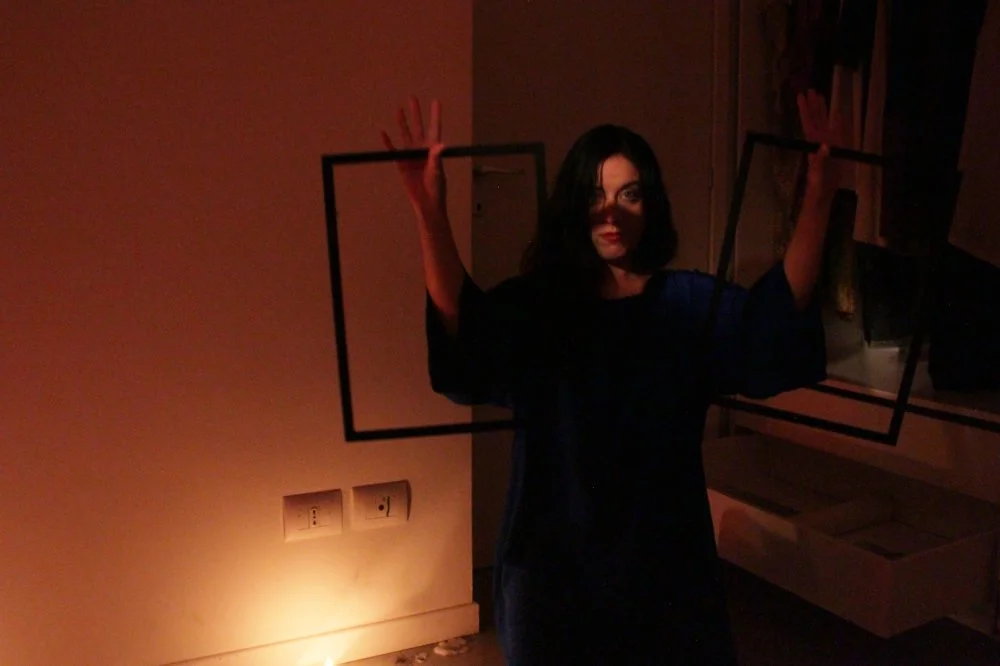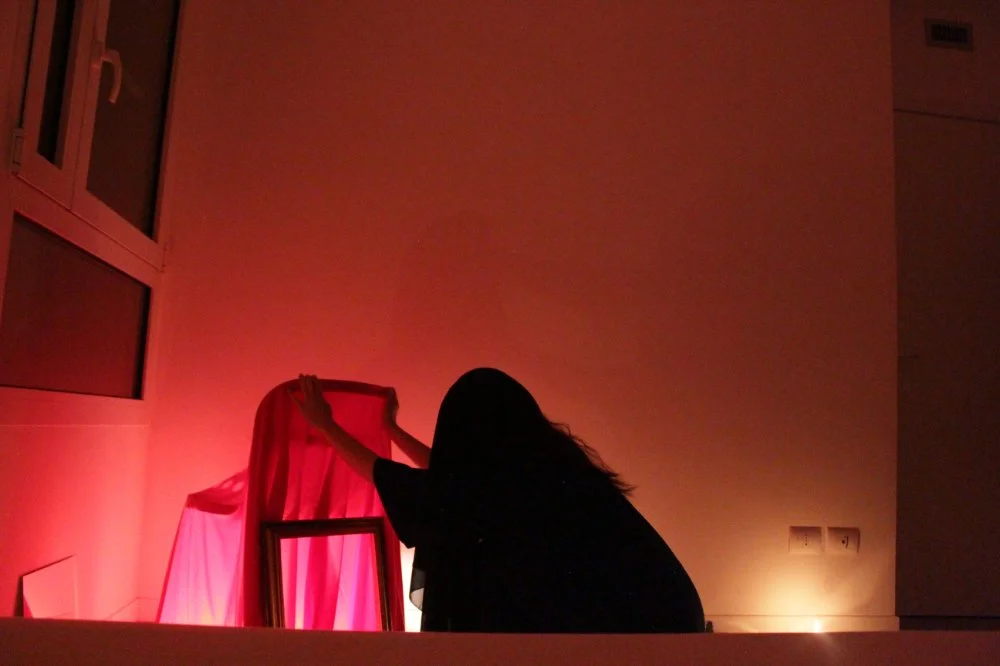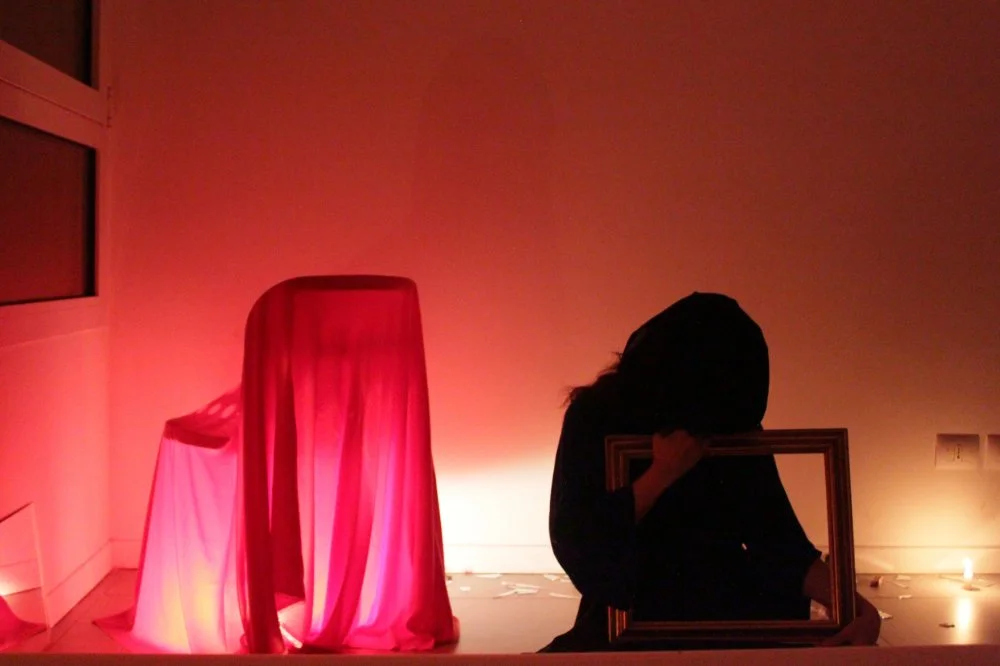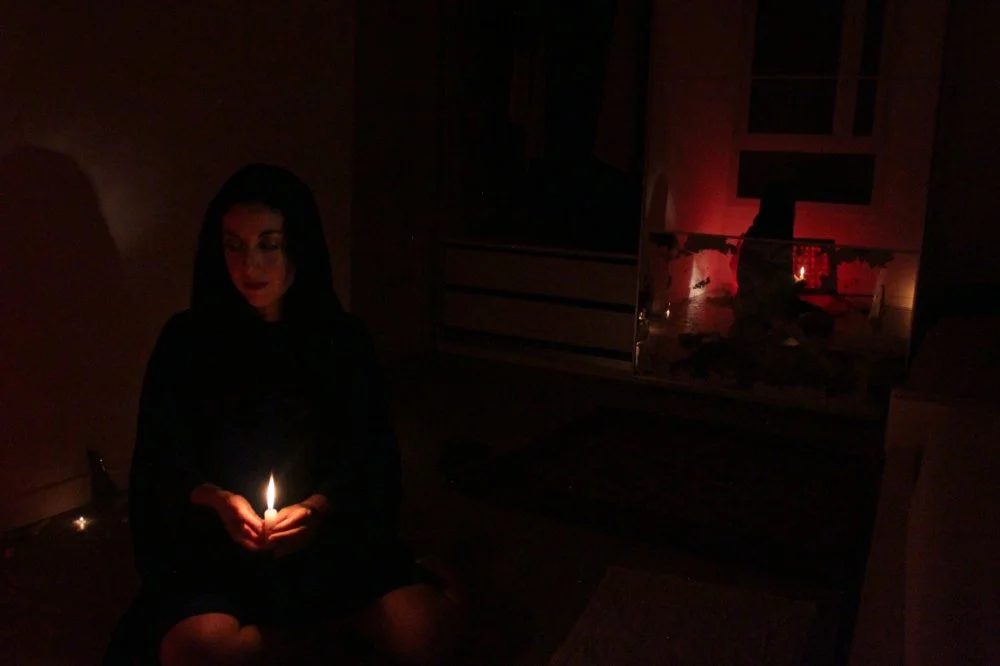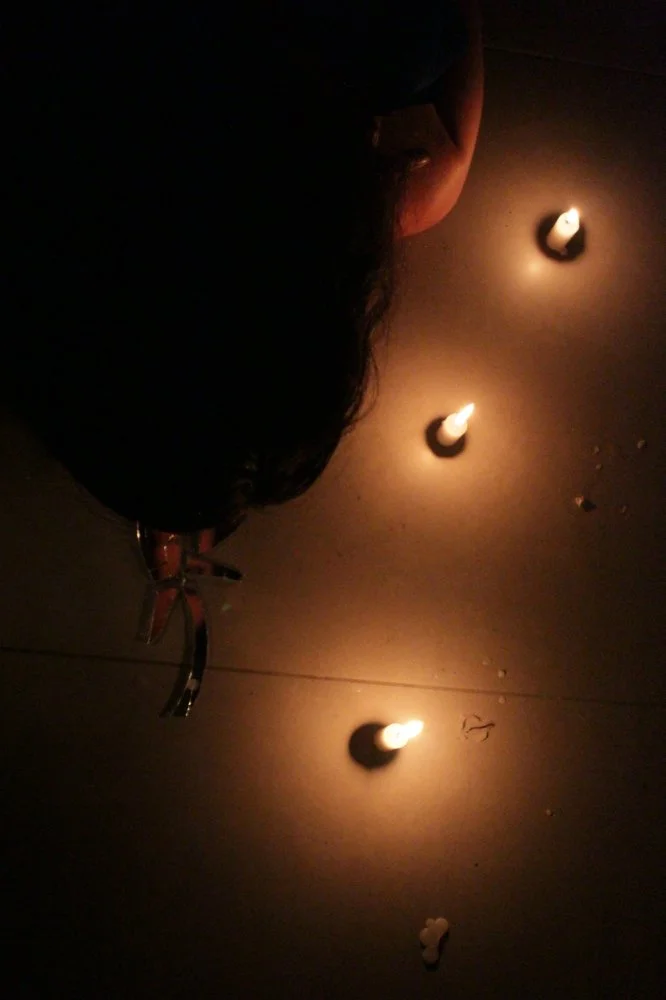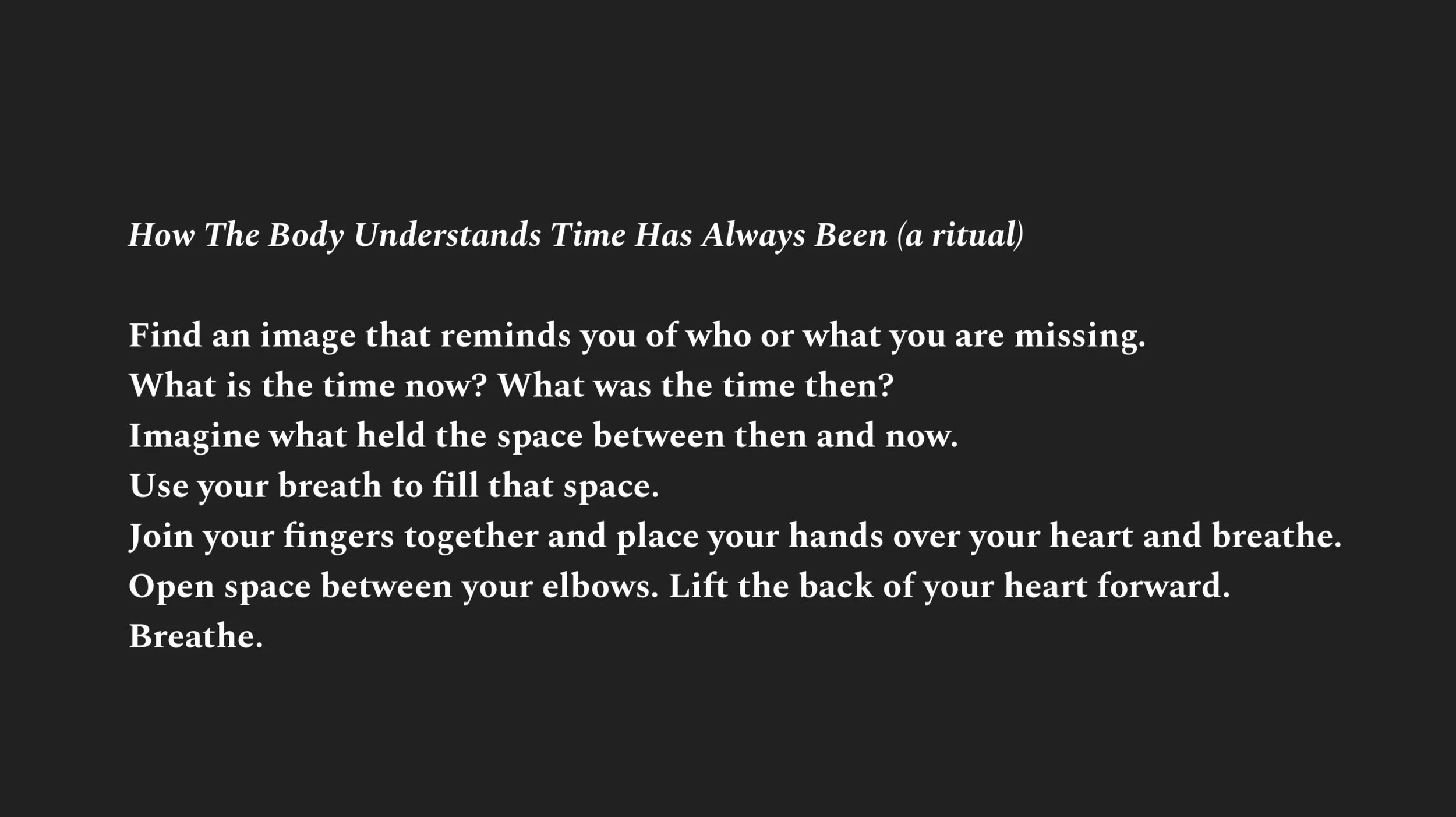This Story Doesn’t Begin With Me
One-To-One Performance & Installation
Mare Culturale Urbano, Milan, Italy 2018
Glurns Art Point, Glurns, South Tyrol 2026
About the performance
What if you could get to know a stranger by asking a question that elicits desire as a mode of self identification rather than a definition of location or ethnicity? Since our identities are subjected to trauma and systematic violence that nation-state projects through categorization, This Story Doesn’t Begin With Me, invites participants to consider what they long for or where they belong when introducing themselves. Through this exchange, we will attempt to discover a more precise and relevant vocabulary, specific to our new relationship.
My Iranian heritage and status as a dual citizen of both the United States of America and the Islamic Republic of Iran has been used to justify state surveillance. This form of discrimination and exposure that my non-Iranian friends and family do not experience. Being asked, “Where are you from?” or “What is the origin of your name?” has created unease when meeting people for the first time.
To offer participants a sense of this experience, I stage This Story Doesn’t Begin With Me in a dimly-lit bedroom, inviting people to shine a flashlight on me and the surrounding installation. As the dialogue evolves we consider whose lives matter and how these lives are counted as valuable in order to go beyond forms of identification that are linked to nationhood and the justification of endless wars. This encounter creates a sense of ease, hospitality, and social intimacy that is conducive to sharing personal history. By making connections to forms of sacrifice that pervade our understanding of values, collaborators are invited to construct their own identity cards that trace a specific line of family history, on hanji, traditional Korean Rice Paper.
This Story Doesn’t Begin With Me is the first performance in the Waking Up Iranian American series. The project is an autoethnographic work focused on the ways cultural exchange develops between a performer and a participant. These encounters create a space where people are invited to participate in discussions and actions about being between cultures, nationalism, and Islamophobia, so that we might move beyond antiquated notions of free and oppressed. In this sense, the dialogical framework of the performances is a form of collaboration and, in its broadest sense, a key to changing power relationships between performers and participants. In Waking Up Iranian American, social intimacy is used as a strategy to counteract the positioning cultures of fear intend to create.







